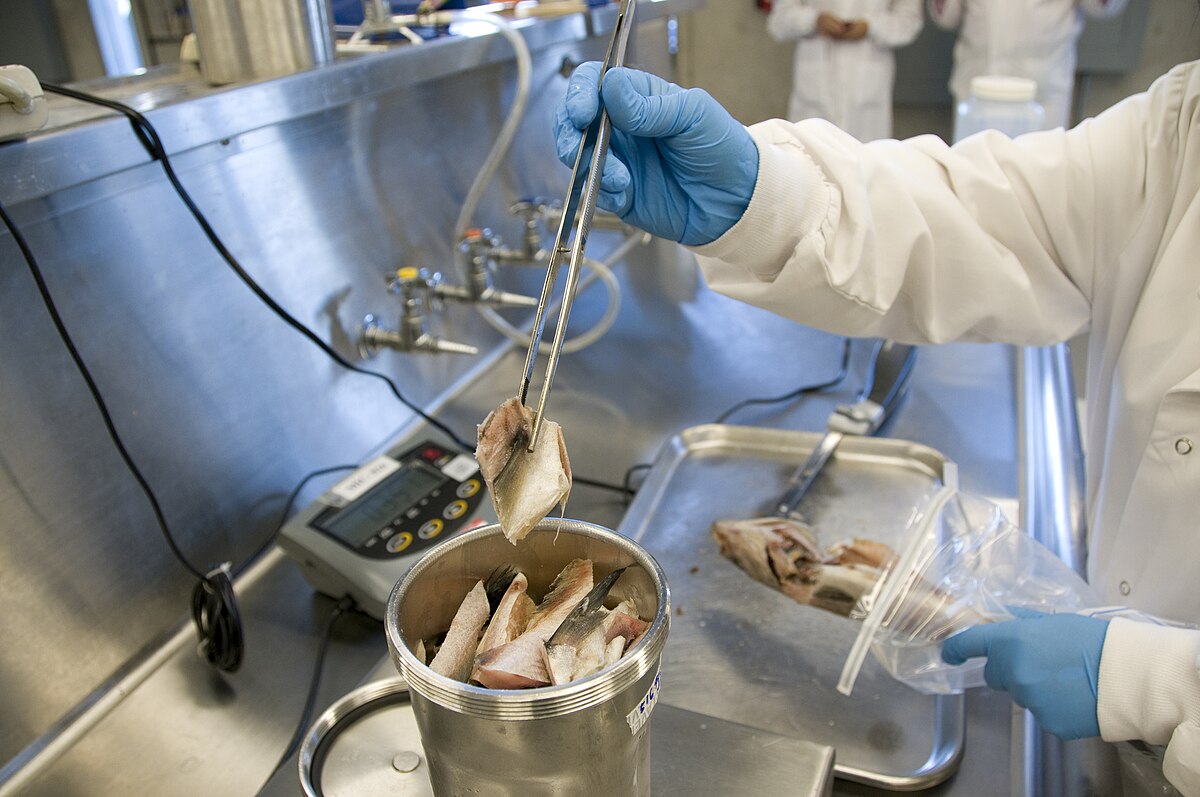In an era where consumer awareness regarding food safety is at an all-time high, businesses in the food industry must prioritise not just compliance, but also the quality of their products. Food safety and quality management software has emerged as a vital tool for organisations aiming to enhance their operational efficiency and ensure the highest standards of safety. This article delves into the myriad benefits of implementing such software, highlighting its significance in today’s competitive market.
Streamlined Compliance with Regulations
Food safety regulations are stringent and constantly evolving. For businesses, keeping up with these regulations can be a daunting task. Food safety and quality management software simplifies this process by automating compliance tracking and reporting.
The benefits of food safety and quality management software are manifold, ranging from streamlined compliance to enhanced customer satisfaction. In a landscape where food safety is paramount, investing in such software is not just a strategic decision but a necessary one for businesses aiming to thrive.
Automated Documentation
One of the primary advantages of using specialised software is the automation of documentation. This feature ensures that all necessary records are maintained accurately and are easily accessible. From tracking ingredient sources to documenting temperature logs, the software can handle it all, reducing the risk of human error. Furthermore, the ability to generate reports at the click of a button means that businesses can quickly provide evidence of compliance during audits, saving valuable time and resources.
Real-Time Updates
Regulatory changes can happen rapidly, and being informed is crucial. Many food safety software solutions offer real-time updates regarding changes in legislation. This allows businesses to adapt their processes swiftly, ensuring ongoing compliance and avoiding potential fines or legal issues. Additionally, these updates often come with guidance on how to implement necessary changes, which can be particularly beneficial for smaller businesses that may lack dedicated compliance teams.

Moreover, the integration of mobile technology in food safety software further enhances the ability to stay compliant. Employees can receive alerts and updates directly on their devices, allowing for immediate action when required. This level of accessibility not only promotes a culture of safety within the organisation but also empowers staff to take ownership of their roles in maintaining compliance. As a result, businesses can foster a proactive approach to food safety, rather than merely reacting to issues as they arise.
Enhanced Product Quality
Quality management is not just about meeting safety standards; it also involves delivering products that meet consumer expectations. Food safety and quality management software plays a pivotal role in enhancing product quality through various mechanisms.
Learn more at: Boost Traceability with Food Safety Traceability Software
Monitoring and Control
With integrated monitoring systems, businesses can track quality parameters throughout the production process. This includes everything from ingredient quality to final product testing. By identifying issues early, companies can rectify problems before they escalate, ensuring that only the best products reach consumers. Furthermore, real-time data analytics enable manufacturers to make informed decisions swiftly, allowing for adjustments to be made on the fly. This proactive approach not only minimises waste but also optimises resource allocation, ultimately leading to a more sustainable production cycle.
Standard Operating Procedures (SOPs)
Food safety software often includes features for creating and managing SOPs. By standardising processes, businesses can maintain consistent quality across all products. This not only boosts consumer confidence but also fosters a culture of quality within the organisation. Additionally, well-documented SOPs serve as valuable training tools for new employees, ensuring that everyone is aligned with the company’s quality standards from the outset. Regular reviews and updates of these procedures also allow companies to adapt to changing regulations and market demands, reinforcing their commitment to excellence and continuous improvement. Learn more about quality on https://pmc.ncbi.nlm.nih.gov/articles/PMC6994875/
Improved Traceability
In the event of a food safety incident, traceability is crucial. Food safety and quality management software provides an efficient way to trace products back through the supply chain, enabling rapid response to potential issues.
Supply Chain Transparency
With enhanced traceability features, businesses can monitor the entire supply chain, from farm to fork. This transparency allows for quick identification of the source of contamination or quality issues, which is essential for effective crisis management.
Recall Management
In the unfortunate event of a product recall, having robust traceability can significantly reduce the impact on both the business and consumers. Software solutions can streamline the recall process, ensuring that affected products are identified and removed from shelves swiftly, thereby protecting public health and maintaining brand integrity.
Cost Efficiency
Investing in food safety and quality management software may seem like a significant expense, but the long-term savings often outweigh the initial costs. This software can lead to substantial cost efficiencies in various areas.
Reduced Waste
By closely monitoring production processes and quality metrics, businesses can identify inefficiencies that lead to waste. Whether it’s overproduction or spoilage, reducing waste not only saves money but also benefits the environment.
Minimised Liability
Non-compliance with food safety regulations can result in hefty fines and legal actions. By utilising software that ensures compliance, businesses can minimise their liability and protect their financial standing. This proactive approach to risk management is essential for maintaining profitability.
Enhanced Customer Satisfaction
In today’s market, customer satisfaction is paramount. Food safety and quality management software can significantly contribute to a positive customer experience, which is vital for brand loyalty and repeat business.
Transparency and Trust
Consumers are increasingly interested in the origins of their food and the processes behind its production. By utilising software that provides transparency regarding sourcing and safety measures, businesses can build trust with their customers. This transparency can be a unique selling point that differentiates a brand in a crowded marketplace. To read more about transparency click here.
Consistent Quality
When customers consistently receive high-quality products, their satisfaction levels rise. Food safety and quality management software ensures that quality standards are met consistently, leading to positive reviews and word-of-mouth recommendations. This can significantly enhance a brand’s reputation and market position.
Data-Driven Decision Making
In the age of information, data is one of the most valuable assets a business can possess. Food safety and quality management software collects and analyses data that can inform strategic decisions.
Performance Metrics
By providing insights into various performance metrics, such as production efficiency and quality control failures, businesses can identify areas for improvement. This data-driven approach enables organisations to make informed decisions that enhance operational efficiency and product quality.
Market Trends and Consumer Preferences
Many software solutions also offer analytics tools that can track market trends and consumer preferences. By understanding what consumers value, businesses can tailor their products and marketing strategies accordingly, ensuring they remain competitive in a dynamic market.
Training and Employee Engagement
Implementing food safety and quality management software can also foster a culture of safety and quality among employees. Training is a crucial aspect of this process.
Comprehensive Training Modules
Many software solutions come equipped with training modules that educate employees on best practices in food safety and quality management. This ensures that all staff members are on the same page and understand their roles in maintaining high standards.
Encouraging Accountability
When employees are trained and aware of the importance of food safety and quality, they are more likely to take ownership of their responsibilities. This increased accountability can lead to a more engaged workforce, ultimately benefiting the organisation as a whole.
Scalability for Future Growth
As businesses grow, their needs evolve. Food safety and quality management software is designed to be scalable, accommodating the changing requirements of an expanding organisation.

Adapting to Increased Demand
As production volumes increase, so too do the complexities of managing food safety and quality. A robust software solution can adapt to these changes, ensuring that safety and quality standards are maintained even as production scales up.
Integration with Other Systems
Many food safety and quality management software solutions can integrate seamlessly with other business systems, such as inventory management and supply chain logistics. This integration allows for a holistic approach to managing operations, further enhancing efficiency and effectiveness.
Conclusion
By leveraging technology to improve processes, organisations can ensure they meet regulatory requirements, enhance product quality, and ultimately provide consumers with safe, high-quality food. The future of the food industry lies in embracing these technological advancements, and those who do will undoubtedly lead the way in setting new standards for safety and quality.

